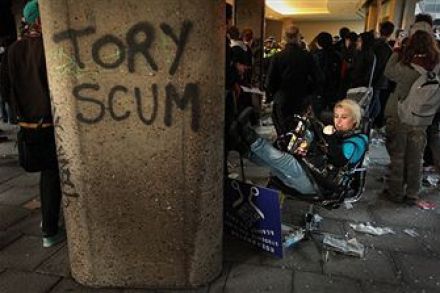Barometer | 13 November 2010
Radical cheek Phil Woolas, the first MP for 99 years to have his election to Parliament overturned, has fewer supporters than the Radical MP John Wilkes, who managed to have his election overturned four times in the Middlesex election fiasco of 1768. —Wilkes was first barred from the House of Commons in 1763 after going into exile in France to escape a second trial on a charge of seditious libel. —He returned in 1768 to stand for election in Middlesex and won, but was then quickly imprisoned over a pornographic poem. —Four by-elections followed, all won by Wilkes; three times the election was declared void and on the final occasion













